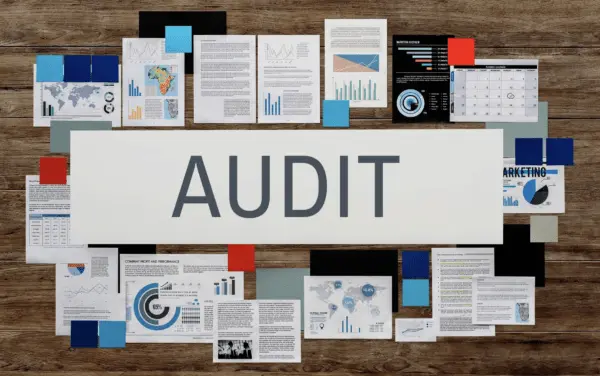THE LONG-TERM IMPACT OF COACHING
ON MANAGERS AND EXECUTIVES
Sarah is a manager recently promoted to a senior position in a struggling company. Since her arrival, she has found herself faced with a demoralized team, outdated processes and a corporate culture resistant to change. Despite her skills, Sarah feels overwhelmed by the scale of the task and doubts her ability to carry out her mission. Sarah is a fictional character, created for this article (yes, I’m a Doctor Frankenstein in my spare time!), but the situation she finds herself in is that of many managers. It may even be the one you’re in right now…
I meet Sarahs every day. At least, those who have decided to draw on the resources of a coach to support them in the challenges they face. Coaching has become a recognized tool for the professional development of managers and executives. Far beyond the immediate benefits, this personalized approach has lasting repercussions on the careers and even individual development of these leaders. Let’s take a closer look at the long-term impact of coaching.
SUSTAINABLE DEVELOPMENT OF LEADERSHIP SKILLS
Coaching enables line managers to acquire and strengthen essential leadership skills. Once integrated, they become an integral part of their professional arsenal. Key skills developed include :
- Effective communication: communicating ideas clearly and inspiring teams.
- Strategic decision-making: quickly assess options and choose the best course of action.
- Managing diverse teams: adapt your management style to different personalities and team dynamics.
- Conflict resolution: deal with disagreements diplomatically and effectively.
These enhanced skills will enable managers and executives to excel in their future missions, whatever the organizational context.
IMPROVING RESILIENCE AND ADAPTABILITY
How can you stand up to the ever-changing world of business? Thanks to your ability to adapt! Managing stress effectively, facing adversity with serenity and adjusting quickly to new environments are skills that coaching helps you hone and master. These tools build resilience (adapting to organizational change), enabling you to maintain your performance even in uncertain or difficult situations – an invaluable asset for professionals often called upon to intervene in crisis situations.

BOOSTING SELF-CONFIDENCE
The coaching process encourages introspection and continuous personal development. Team and company leaders benefit from a better understanding of their strengths and a clear identification of areas for improvement. This deeper self-knowledge boosts their confidence in their leadership abilities. For Sarah, this newly-acquired self-confidence translates into greater ease in making bold decisions and defending her ideas in front of a variety of interlocutors, a crucial element in successfully carrying out her mission.
INCREASED ABILITY TO CHANGE TRANSITIONS
The experience of coaching during periods of intense change enables decision-makers to develop a unique expertise in change management. They learn to anticipate and manage resistance, effectively communicate a vision of transformation, and mobilize the resources needed to bring complex transitions to a successful conclusion. This skill obviously becomes an asset throughout their careers, positioning them as strategic leaders for organizations seeking to evolve.
LUGAN CONSULTING : MANAGERS COACHING
IMPROVING STRATEGIC VISION
Coached managers and executives also learn to refine their strategic thinking. They acquire the ability to step back from complex situations, identify long-term trends and anticipate future challenges. This tactical vision enables them not only to be proactive, but also to positively influence the direction taken by their organization.
DEVELOPING A CONTINUOUS LEARNING MENTALITY
Executive coaching instills a culture of continuous learning. People who have benefited from it develop the habit of actively seeking feedback, reflecting on their experiences and constantly adjusting their approach. This openness to continuous learning becomes a powerful driving force for their professional development throughout their career.
IMPACT ON WORK/LIFE BALANCE
Once the coaching process has been successfully completed, the positive repercussions also influence the coachees’ personal lives. They acquire :
- Greater self-awareness
- A deeper understanding of their values and motivations
- Tools for effective time and energy management
These personal benefits translate into improved professional performance and a more fulfilling career in the long term.
EXPANDING YOUR PROFESSIONAL NETWORK
The coaching experience often exposes them to new perspectives and leadership practices. This may lead them to participate in communities of practice, attend specialized conferences or join think tanks… These connections enrich their professional network, offering opportunities for collaboration and exchange of ideas throughout their career.
I see on a daily basis that the long-term impact of management coaching is profound and multidimensional. From improving leadership skills to sharpening strategic vision and personal development, it leaves a lasting imprint that shapes not only careers, but the overall approach to leadership. These benefits make coaching a valuable investment both for the managers themselves and for the organizations that benefit from their skills for years after their initial assignment has ended. In an ever-changing business world, coaching is emerging as an easily activated tool for developing agile, resilient and visionary leaders capable of guiding their organizations towards sustainable success.










